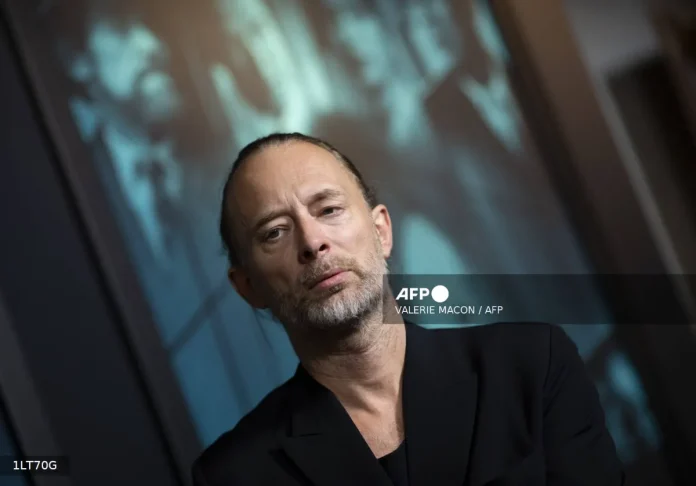Radiohead frontman Thom Yorke states he would not perform in Israel, citing distance from Netanyahu regime in new interview
LONDON: Radiohead frontman Thom Yorke has stated in a British newspaper interview that he would not currently perform in Israel.
This declaration comes eight years after the band defied pro-Palestinian activists to play a Tel Aviv concert.
“Absolutely not. I wouldn’t want to be 5,000 miles anywhere near the Netanyahu regime,” he told The Sunday Times Magazine.
Yorke was referring to Prime Minister Benjamin Netanyahu’s government during the interview.
The discussion with members of the British band occurred before this month’s ceasefire agreement between Israel and Hamas.
Radiohead will begin their first tour in seven years next month with twenty shows across five European cities.
Their 2016-2018 “A Moon Shaped Pool” world tour sparked significant backlash when they performed in Tel Aviv despite boycott calls.
Yorke hinted at some regret over that decision in the new interview.
He stated he was “horrified” when a “clearly connected high up” Israeli official visited their hotel to thank them for playing.
The Israel-Palestinian conflict has consistently affected the band and its members at various points.
Yorke briefly left the stage during a solo performance in Australia last year after a pro-Palestinian heckler interrupted.
The heckler shouted “how many dead children will it take for you to condemn the genocide in Gaza” during the incident.
The frontman released a statement in May saying the experience left him “in shock that my supposed silence was somehow being taken as complicity”.
Radiohead bandmate Jonny Greenwood faces sustained criticism from boycott advocates for his collaborations.
Greenwood is married to an Israeli artist and works extensively with Israel-born rock musician Dudu Tassa.
The Radiohead guitarist told the magazine he spends considerable time in Israel with family.
He added that he is “not ashamed of working with Arab and Jewish musicians” through his musical partnerships. – AFP







